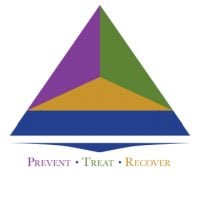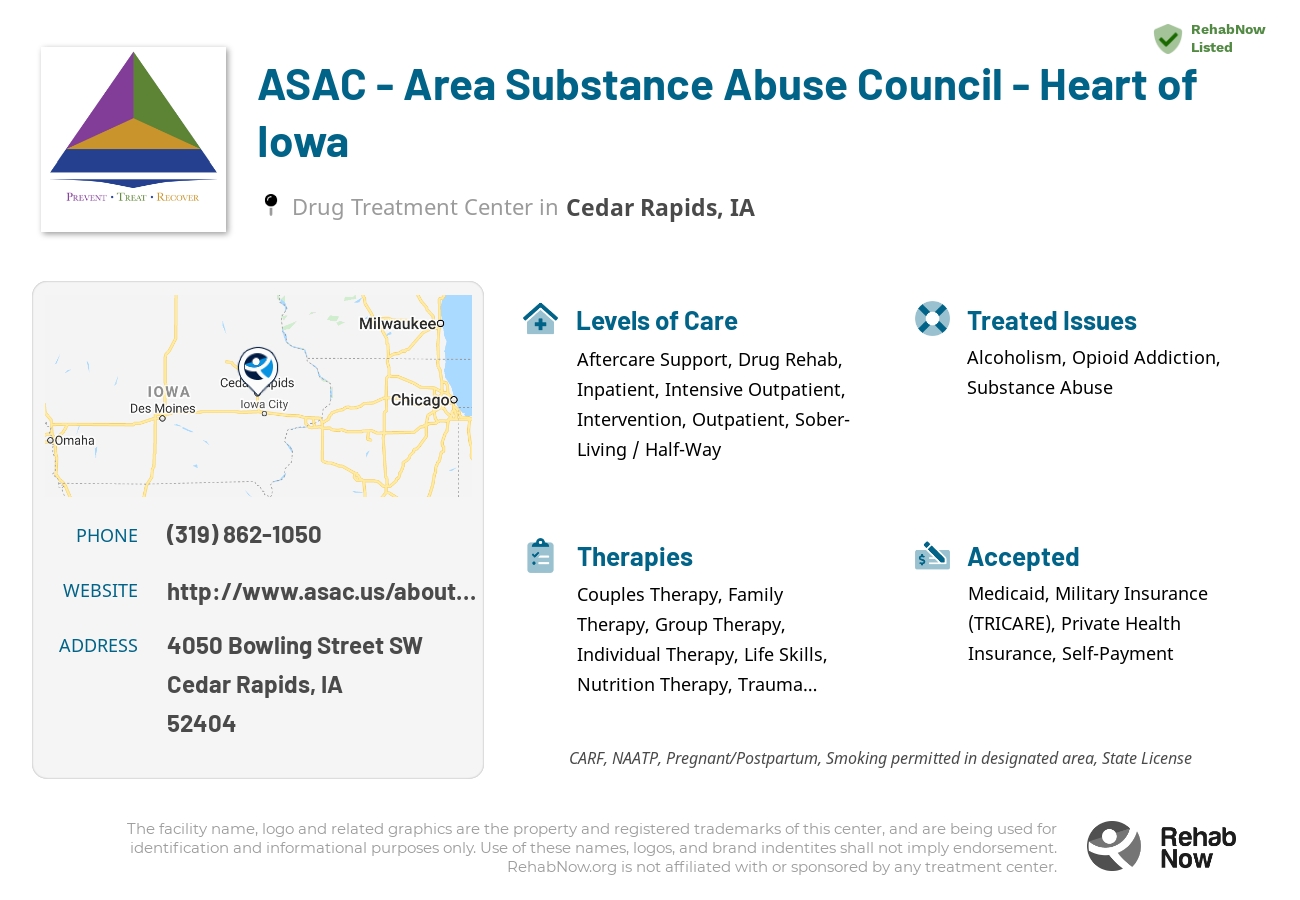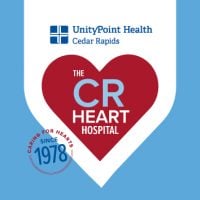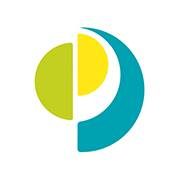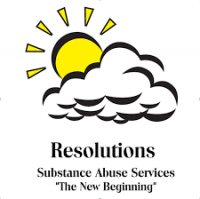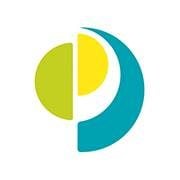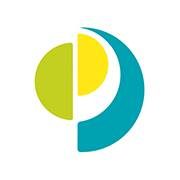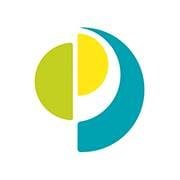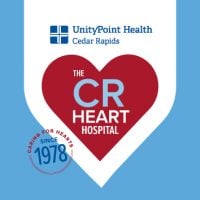ASAC - Area Substance Abuse Council - Heart of Iowa
Drug Rehab Center in Cedar Rapids, Iowa
ASAC - Area Substance Abuse Council - Heart of Iowa in Cedar Rapids, Iowa is a comprehensive treatment center specializing in personalized care and treatment options for individuals with drug and alcohol addiction, mental health issues, and other behavioral issues, offering a wide range of programs and services tailored to meet each individual's needs.
About ASAC - Area Substance Abuse Council - Heart of Iowa in Iowa
ASAC - Area Substance Abuse Council - Heart of Iowa is a residential substance use disorder treatment center located in Cedar Rapids, IA. Their primary focus is providing comprehensive treatment for pregnant women and women with children struggling with addiction.
The center allows women to remain with their children while receiving tailored counseling, life skills training, and other recovery services. Treatment aims to equip women with the tools needed for sober, independent living.
ASAC is CARF accredited and offers a 36-bed facility. Treatment includes mental health counseling, medical care, parenting training, and educational assessments. Women typically stay 60-90 days, with fees based on a sliding income scale and insurance accepted.
- On-site apartments for family living
- Licensed childcare and children's programming
- Initial medical exams for women and children
To qualify, applicants must be Iowa residents, either pregnant or with children up to age 18. They must have a substance abuse assessment and be willing to create a treatment plan with life goals.
ASAC specializes in treating opioid, alcohol, and drug addictions, as well as co-occurring mental health issues like trauma, depression, and gambling disorders. Their evidence-based therapies include 12-step facilitation, cognitive behavioral therapy, and dialectical behavior therapy.
Genders
Ages
Modality
Additional
Accreditations

CARF
The Commission on Accreditation of Rehabilitation Facilities (CARF) is a non-profit organization that specifically accredits rehab organizations. Founded in 1966, CARF's, mission is to help service providers like rehab facilities maintain high standards of care.
Conditions and Issues Treated
Substance Abuse Treatment is important when getting sober, as it helps addicts learn the skills they need to live a clean life. There are many different kinds of recovery treatment, including but not limited to medication-assisted therapy, behavioral therapeutic approaches, self-help groups, and counseling. Each treatment has its benefits that help addicts recover.
Counseling can help addicts learn the skills they need to live sober lives. It can be used to treat underlying mental health issues, like depression or anxiety, that could lead to relapse. Counseling can also help people find work, deal with family problems, and learn to manage living without drugs.
With so many people addicted to opioids, we need to help those who want to quit. The cycle begins when opioid addicts take opioids for a painful injury. When someone starts taking their medication differently or in excess, it means they’re addicted and at risk of overdosing.
In , detoxing from these types of treatments is the most effective way to beat this. Most facilities begin with medical assistance and then provide counseling services; rehabilitation follows after successful treatment.
Levels of Care Offered
This center offers a variety of custom treatment tailored to individual recovery. Currently available are Aftercare Support, Detox, Drug Rehab, Inpatient, Intensive Outpatient, Intervention, Outpatient, Residential, Sober-Living / Half-Way, with additional therapies available as listed below.
Detox is an integral part of recovery and often very hard. Detoxification is the process of letting the body remove the drugs in it. It addresses the physical aspect of addiction. Detox from drugs can be unsafe as the patient undergoes withdrawal symptoms that range from headaches, vomiting, body aches to seizures and cardiac arrests. The main purpose of detox is to keep the drug users comfortable as the drugs leave their system.
Quitting cold turkey is not recommended and can lead to many issues. Detox is best done under medical supervision so that a team of experts can monitor the side effects and complications. Detox, alone, does not guarantee sobriety as the underlying psychological issues are not addressed.
Inpatient treatment is a form of recovery used in drug rehab. Inpatient recovery offers individual therapy, groups, and family therapy to ensure that the addict has the best recovery possible. A variety of treatments are provided in this type of recovery, depending on what treatment the addict needs at that particular time.
The length of inpatient addiction treatment depends on the addict and their addiction. Inpatient rehabilitation can last anywhere from 30 days to 90 days, depending on how severe the drug abuse is. Inpatient rehab is a costly drug treatment, costing anywhere from $30k- to $60k. However, insurance often offers help in covering these costs.
An intensive outpatient program (IOP) is effective for drug rehab, but it can take six months to several years to complete. It’s the most popular type of drug rehab program in the United States. One example of a successful IOP success story is actor and comedian Chris Rock, sober since 1990.
An IOP allows participants to spend nights at home while attending meetings throughout the day. It’s a good way for drug addicts to make a recovery plan in an outpatient setting while still supporting their loved ones.
Alcohol or drug addiction, or co-occurring disorders, are treated in an outpatient program. The patient must attend therapy and other programs at the facility but can return home each night.
Outpatient treatment allows recovering addicts to live at home while receiving addiction treatment. Outpatients can attend group sessions for a few hours per week. Outpatients may also continue to work full time and study/attend school without interruption if they choose.
Sober living homes, offered by rehabilitation facilities, help recovering addicts transition back into society. These homes have rules and regulations that must be followed to maintain sobriety. They also provide resources such as vocational training and therapy sessions.
Residential treatment programs are those that offer housing and meals in addition to substance abuse treatment. Rehab facilities that offer residential treatment allow patients to focus solely on recovery, in an environment totally separate from their lives. Some rehab centers specialize in short-term residential treatment (a few days to a week or two), while others solely provide treatment on a long-term basis (several weeks to months). Some offer both, and tailor treatment to the patient’s individual requirements.
Intervention services are often the final safety net for individuals struggling with addiction. The process of an intervention starts when family or friends get together to talk about how they think their loved one’s life has been impacted because of addictive behaviors and why treatment is needed for them to move forward into a healthy future. The discussion includes information on what different types of treatments will do, just in case your loved ones agree that this might be necessary at some point during the conversation.
The accomplishment of completing a drug or alcohol treatment program is just the first step. Once that is complete, aftercare support comes into play. This includes helping people adjust to life without substances outside of guidelines with assistance like getting sober living accommodations and career counseling and AA/NA programs for those who are struggling between sobriety or want continued help in maintaining it once they have completed their initial rehabilitation at an addiction facility.
Aftercare comprises services that help recovering addicts readjust to normal day-to-day activities while working on specific issues. These problems include psychiatric issues, family problems caused by substance abuse, continuing education pursuits if desired during rehab, etc. These can last up to one year+ depending on what’s needed most urgently upon completion of earlier stages.
Therapies & Programs
Different people react differently to various treatment options. Some drug rehabilitation centers offer individualized treatment that caters to the specific needs of a drug addict. The best treatment option varies on an individual depending on the type of drug abused, life history, medical condition of the person, social circumstances, and the environment they live in now.
When a person enters drug rehab, they usually have anti-drug associations such as withdrawal symptoms, stress, cravings, etc. The first step of drug rehab is to detoxify the body from any residual substances in it. Drug rehabilitation centers usually employ trained medical professionals to help in this process. Usually, the initial detoxification lasts for five days, where the person is monitored under close supervision.
Couples therapy is a treatment method used to help couples in which at least one member of the couple has a drug addiction. The treatment is designed to help the couple strengthen their relationship to minimize the effects of drug addiction on their lives and promote healthy communication between them.
Couples therapy can be used whether the addicted partner is using drugs or in recovery. It helps the couple create healthy communication and coping skills to minimize the problem-solving abilities of one partner, which can then be directed at solving issues related to their addiction. It also helps couples address problems that may be related to drug addiction. Couples therapy can help couples feel like a team and not feel like their partner is the problem.
Couples therapy is very challenging for both the drug addict and their partner. It requires an intense commitment between the two individuals to participate in the sessions and the homework assigned between sessions.
An additional benefit of couples therapy is that it can help make other types of treatment, such as 12-step programs, more effective.
Family therapy sessions typically involve the addict and their family members. During these sessions, a therapist will work with everyone involved to help them understand addiction and find healthy ways of coping without substance abuse.
Some addicts might feel embarrassed about their substance abuse problems. By encouraging family members to attend these sessions, therapists can show addicts that they’re not alone in dealing with addiction. Therapists can also work with family members to help them understand addiction and learn how to offer support and encouragement to their loved one as they deal with substance abuse issues.
Attending group therapy at ASAC - Area Substance Abuse Council - Heart of Iowa in , is a useful way for those seeking sobriety to realize they aren’t the only one going through it.
This is when a group of people on different recovery phases get together and talk about what they’re going through, their triggers, successes, and failures. This can include alternative types of therapies too! Group therapy may occur on an outpatient or inpatient basis with groups that have no pre-existing relationships outside the session, unlike support groups where everyone already knows each other beforehand.
Trauma therapy is a form of therapy used to help people process and understand past traumas. This can help struggling addicts, as many people turn to drugs or alcohol to mask the pain of their past. Trauma therapy can be done in several ways, such as through visualization, discussion, and writing down thoughts and feelings. The goal is to help the individual understand why they are having problems coping with certain situations and changing how they think and react to things. This is often done in tandem with other therapies to treat the underlying issues associated with addiction.
The idea behind trauma therapy is that while some people can experience traumatic events and not have lasting psychiatric symptoms, many others will. In these cases, memories get hidden from consciousness but continue to influence how the person processes and copes with things in their life. They may avoid situations that resemble what happened or become suddenly angry or irritated to a situation that reminds them of a past event. With the help of a therapist, people can go back over memories and experiences. This helps them understand why they are having problems coping with certain situations and changing how they think and react to things.
This type of cognitive-behavioral therapy helps people understand how their thoughts, behaviors, and feelings are interconnected. It can help patients with borderline personality disorder gain control over their actions and stop self-harming thoughts and attempts.
Cognitive Behavioral Therapy is a type of psychotherapy that helps people address the thoughts and behaviors that may have led to their addiction. It also helps change negative thoughts into positive ones and promotes healthy communication between addicts and those around them. CBT is an efficient treatment for individuals suffering from all sorts of addictions.
Cognitive Behavioral Therapy (CBT) focuses on the underlying thoughts and behaviors that caused the problem of addiction in the first place and may cause a relapse. Negative feelings are common in drug abuse disorders, but they can lead to co-occurring disorders if not recognized. CBT involves strategies that help to change the behavior pattern by restructuring negative thoughts into positive ones. It helps to remove these feelings, and it provides long-term benefits. Also, CBT promotes self-awareness, self-control and can be administered as a mono-therapy or as part of combination therapy.
The use of Rational Emotional Behavior Therapy for addicts has been shown to have positive and desirable outcomes. It is a form of specific counseling that replaces negative and self-limiting thoughts with positive and productive behaviors. Self-defeating thoughts and habits can limit your possible successes. Some examples of this are procrastination, unhealthy eating, and angry outbursts. You may not be aware that some unhealthy behaviors and thoughts are sabotaging your potential accomplishments.
Life Skills Services offered at Drug Treatment Centers assists addicts in their recovery by teaching them healthy coping mechanisms that will aid them in becoming sober, focussing on helping people enter into, and maintaining long-term sobriety. Drug Treatment Centers provide Life Skills Services at varying levels of intensity, specific to the needs and requirements of each patient.
Life Skills Services offered at Drug Treatment Centers assists addicts in their recovery by teaching them healthy coping mechanisms that will aid them in becoming sober, focussing on helping people enter into, and maintaining long-term sobriety. ASAC - Area Substance Abuse Council - Heart of Iowa in Cedar Rapids, Iowa provide Life Skills Services at varying levels of intensity, specific to the needs and requirements of each patient.The benefits of Life Skills Services offered at Drug Treatment Centers:
- Restores hope and empowerment — Helps addicts believe that recovery is possible and instills a new confidence in their ability to achieve a positive, drug-free future
- Enhances family involvement — Encourages families to get involved in the recovery process and supports their understanding and encouragement of healthy behavior.
- Increases patient’s compliance — Helps patients take responsibility for and ownership of their recovery and encourages continued progress
- Reduces relapse rates — Encourages long-term abstinence and emphasizes the importance of establishing sober support systems.
A 12-Step Program is used in treatment to help addicts stop abusing drugs and alcohol. The steps of the program include:
- Making amends.
- Believing in a higher power.
- Taking action to improve their life and admitting that they have a problem with substance use.
A cognitive restructuring step aims to change the way an individual thinks about their addiction to recover and live a life free of substance abuse. This method is extremely popular and very successful for many people who choose it as their treatment option.
Good nutrition can be difficult for people recovering from addiction because they may not feel like eating while they are experiencing the physical and emotional side effects of detoxing.
Nutrition therapy can help addicts in the following ways:
- Helps individuals to understand which foods promote good health and support recovery that will assist them during detox
- Provides guidance and education about how to maintain a nutritious diet so they can stay healthy during recovery
- Improves their overall health and well-being, which can reduce the severity of substance withdrawal symptoms.
Nicotine replacement therapy is a popular method of treatment that helps individuals overcome their addiction to cigarettes by providing them with safer alternatives. Nicotine replacement options can include:
- Inhalers
- Gum
- Patches
These treatments are often used in combination with other therapies, such as cognitive behavioral therapy or motivational interviewing, to help individuals more easily transition into a smoking-free lifestyle.
Payment Options Accepted
For specific insurance or payment methods please contact us.
Is your insurance accepted?
Ask an expert, call (888) 674-0062
Area Substance Abuse Council Associated Centers
Discover treatment facilities under the same provider.
- Area Substance Abuse Council - New Directions in Clinton, IA
- ASAC - Area Substance Abuse Council - Main Campus in Cedar Rapids, IA
- ASAC - Area Substance Abuse Council - The Way Home in Cedar Rapids, IA
- ASAC - Area Substance Abuse Council - Maquoketa in Maquoketa, IA
- ASAC - Area Substance Abuse Council - Vinton in Vinton, IA
Learn More About Area Substance Abuse Council Centers
Additional Details
Specifics, location, and helpful extra information.
Cedar Rapids, Iowa 52404 Phone Number(319) 862-1050 Meta DetailsUpdated April 15, 2024
Staff Verified
ASAC - Area Substance Abuse Council - Heart of Iowa Patient Reviews
There are no reviews yet. Be the first one to write one.
Cedar Rapids, Iowa Addiction Information
Iowa ranks 2nd lowest in the nation for illicit drug use, but 12% of its residents are still using these drugs every single year. Methamphetamines account for more than 90% of all drug-related prison admissions in Iowa. Alcohol is the most widely abused substance in the state, with 23% of residents admitting to heavy drinking.
The number of people addicted to drugs in Cedar Rapids, Iowa continues to rise each year. There is a significant problem with methamphetamine and opioid abuse. About 6.0% of Iowans are chronic drug users. Between 2002 and 2012 in Cedar Rapids, drugs related arrests had an increase of 43%. There are different types of drug addiction treatment programs available in Cedar Rapids including long-term, short-term treatments, outpatient, and residential services.
Treatment in Nearby Cities
- Cedar Falls, IA (57.7 mi.)
- Cresco, IA (102.5 mi.)
- Fairfield, IA (66.3 mi.)
- Des Moines, IA (104.3 mi.)
- Atlantic, IA (177.3 mi.)
Centers near ASAC - Area Substance Abuse Council - Heart of Iowa
The facility name, logo and brand are the property and registered trademarks of ASAC - Area Substance Abuse Council - Heart of Iowa, and are being used for identification and informational purposes only. Use of these names, logos and brands shall not imply endorsement. RehabNow.org is not affiliated with or sponsored by ASAC - Area Substance Abuse Council - Heart of Iowa.
